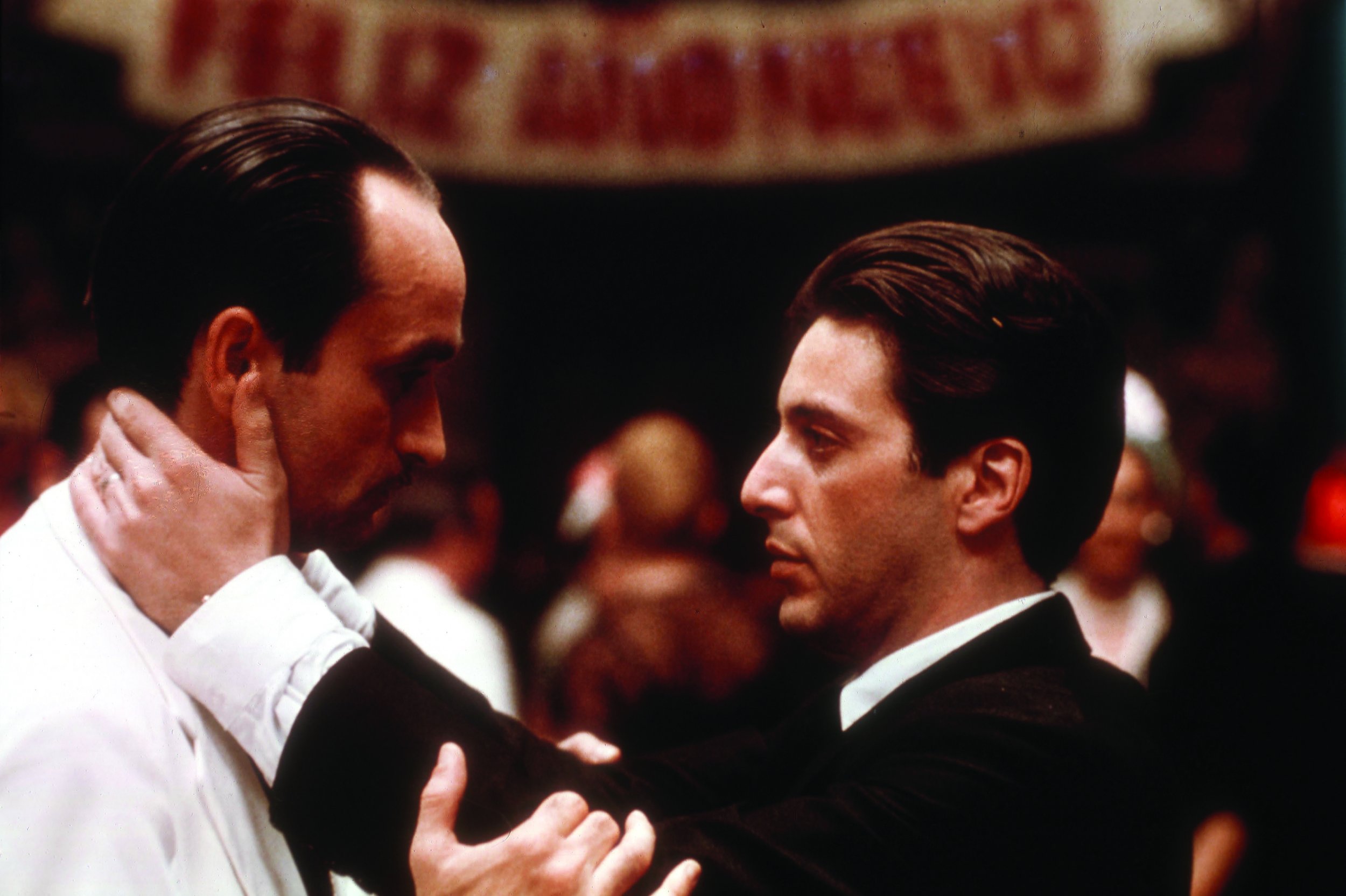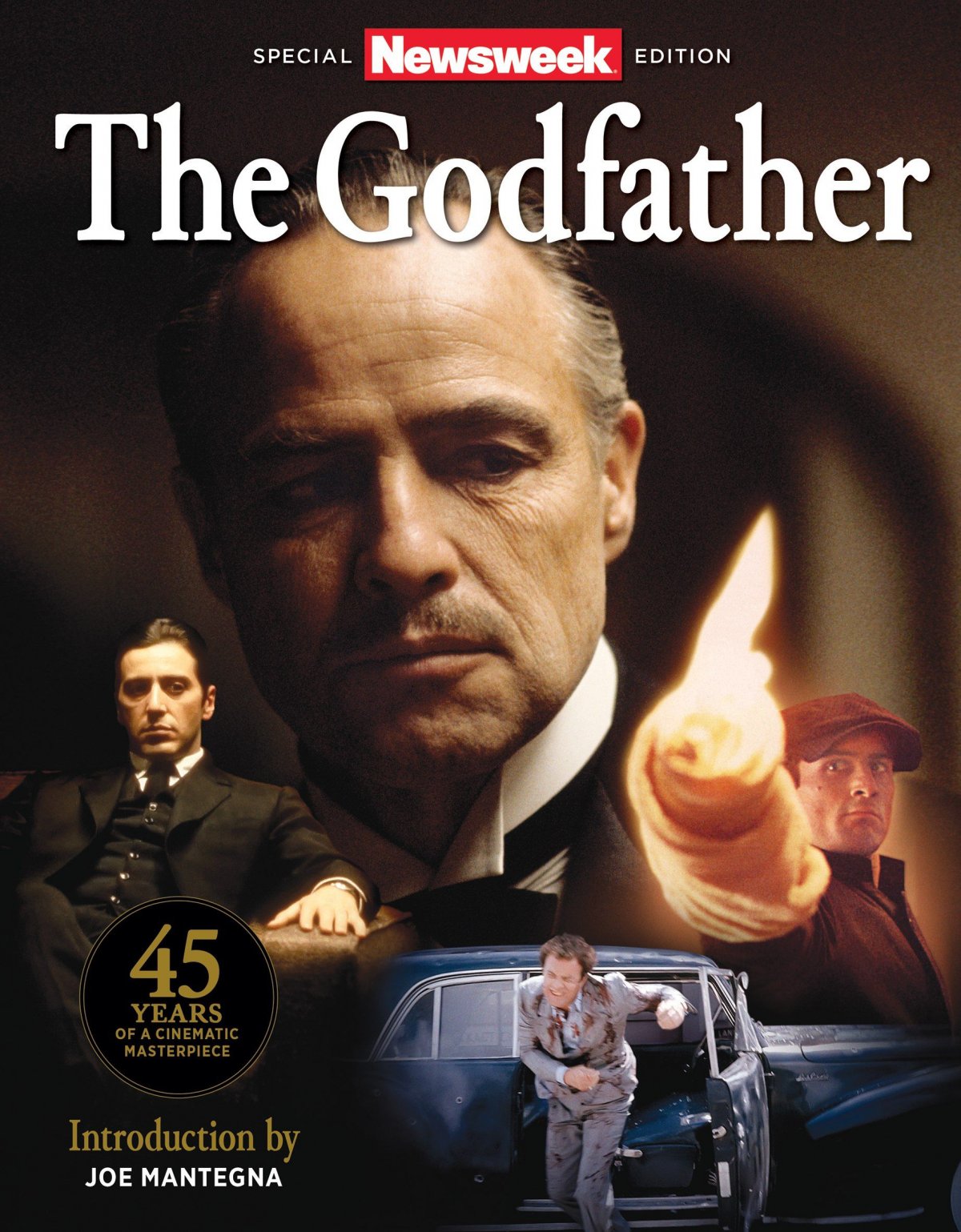
Because of the stress involved in shooting The Godfather, Francis Ford Coppola originally asked Paramount if he could step down in favor of a director of his own
choosing for Part II, content to be a writer and producer. The studio agreed to the deal but rejected Coppola's choice to direct the sequel, the relatively inexperienced Martin Scorsese. Unwilling to task anyone else with Part II, Coppola returned.
This article, and others about The Godfather epic, are featured in Newsweek's special edition, The Godfather—45 Years of a Cinematic Masterpiece.
How do you improve upon perfection? For director Francis Ford Coppola, his crew of dedicated artists and skeptical audiences across the world, that question summed up the challenge faced by the sequel to one of the most well-received movies in cinema's history. Today, The Godfather Part II holds a place of esteem among film aficionados. It's a shorthand for how Hollywood should approach sequels. But when the movie arrived in theaters at the end of 1974, it was met with a critical reception that, compared with today's exuberant embrace, felt more like a slap in the face. Like a bottle of (Coppola) wine, appreciation for the sequel has only improved with age.
The qualities of Coppola's 202-minute followup that drew detractors upon its release are the same that help it attract heaps of praise today—its sprawling, epic scope split between two timelines and numerous characters. "Part II, also written by Mr. Coppola and Mario Puzo, is not a sequel in any engaging way. It's not really much of anything that can be easily defined," wrote Vincent Canby for The New York Times. "Not the least of its problems is its fractured form. Part II moves continually back and forth in time between two distinct narratives…. One story doesn't necessarily illuminate the other, it's just additional data, like footnotes." And Canby's opinion wasn't just held among old-school critics at the Times. Even Roger Ebert, still a fresh face at the Chicago Sun-Times, grew weary with the film's diffusion of action and plot. "The flashbacks give Coppola the greatest diffculty in maintaining his pace and narrative force," Ebert wrote in his 1974 review. "The story of Michael, told chronologically and without the other material, would have had really substantial impact, but Coppola prevents our complete involvement by breaking the tension."
In fairness to the critics of yesteryear, The Godfather Part II was in no sense widely panned upon release (though Canby's Times review is, itself, unrelentingly negative). Most professional tastemakers, even those exasperated by what they felt was the movie's sometimes plodding-pace, recognized the creative crowning achievements of the film's direction, cinematography and acting. And those Godfather fanatics today who can't fathom how a critic could slight what is now arguably the best-regarded entry in the franchise would do well to remember the context in which the movie was released.
The vast majority of films receiving a sequel treatment in the '60s and '70s were either comedies (such as Peter Sellers's Pink Panther movies) or exercises in adventure escapism (such as the James Bond franchise). It's understandable audiences and critics not inundated with an endless parade of world-building sequels, prequels and squeakquels (look it up) might feel disappointed in a Part II that, for all of its twists and turns, begins with Michael Corleone a cold-blooded killer and ends with him in the same position. Looked at from a certain point of view, The Godfather Part II doesn't tell us much that's new or shocking about the world dominated by the Corleones. But for fans of the movie, both in 1974 and today, Part II doesn't need to reinvent the wheel to be a success. The universe crafted by Coppola and Puzo is so compelling and tragically beautiful that checking in again isn't a drawback—it's the main attraction. How do you improve upon perfection? You don't. You offer more.
This article, written by Senior Editor James Ellis, was excerpted from Newsweek's special edition, The Godfather—45 Years of a Cinematic Masterpiece. For more on one of the most highly praised trilogies in history, pick up a copy today.

Uncommon Knowledge
Newsweek is committed to challenging conventional wisdom and finding connections in the search for common ground.
Newsweek is committed to challenging conventional wisdom and finding connections in the search for common ground.
About the writer
To read how Newsweek uses AI as a newsroom tool, Click here.








